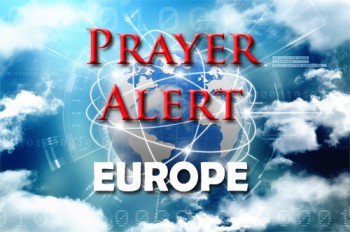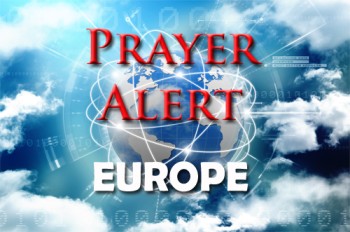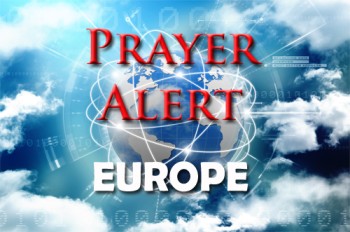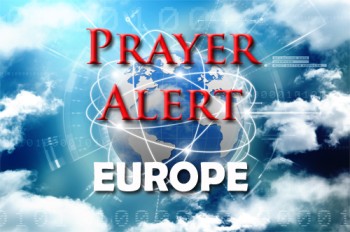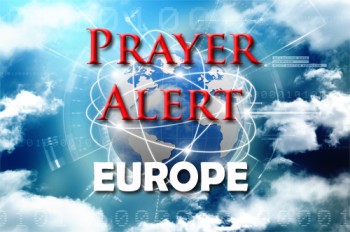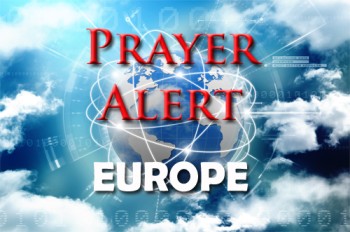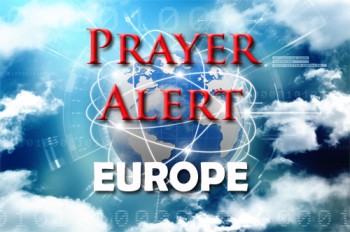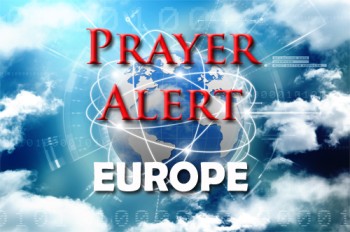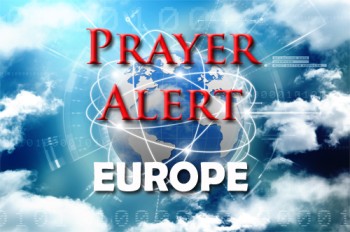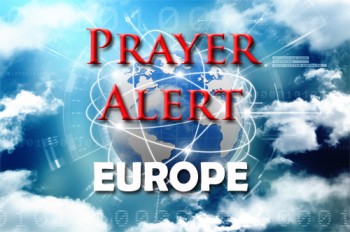Displaying items by tag: Europe
Ukraine: drones touted as key to future success
Ukrainian commander-in-chief Valerii Zaluzhny has highlighted the use of drones as a way of countering Russia's military advantage and altering the course of the war. Russia has also continued to attack Ukraine with drones and missiles, but it has failed to capture new territory despite its superior resources. Recent Ukrainian successes which illustrate the potency of drones include sinking a Russian warship and strikes on airfields and an oil refinery. Ukraine expects to exploit this technological advantage by producing millions more drones. Meanwhile, although the EU finally approved a €50 billion aid package for Ukraine on 2 February, this is seen as only a small step: see
France: farmers’ protest continues
Dozens of farmers were arrested on 31 January after breaking into the huge Rungis wholesale food market south of Paris, during their ongoing protests. Emmanuel Macron’s government had warned farmers not to approach the market, which feeds twelve million people a day. But that failed to take into account the level of anger over what farmers view as unacceptably low pay, stifling red tape, unworkable European policies, and unfair competition from foreign rivals. 91 farmers managed to enter the Rungis site and were arrested for ‘damaging goods’, though they claim they caused no harm. While progress was reported in discussions with new prime minister Gabriel Attal, the protests reflect the deep-seated grievances of farmers against policies they view as detrimental to their livelihoods. At present 4,500 tractors are blocking eighty spots along major roads.
Ukraine / Russia: another prisoner exchange, ICJ ruling
On 31 January, Russia and Ukraine conducted a prisoner exchange. Russia claimed that each side received 195 soldiers, but Volodymyr Zelensky said that 207 Ukrainian soldiers had been returned. This was the 50th exchange since Russia's invasion of Ukraine in February 2022, and the first such swap since the recent plane crash which Russia claimed had 65 Ukrainian prisoners of war on board. There are continuing doubts in Kyiv regarding this assertion, especially because no photographs have been released showing dozens of dead bodies. Both sides have called for an international investigation, and the details of the incident remain unverified. In another development, the International Court of Justice has ruled that Russia violated terrorism and anti-discrimination treaties: see
Ukraine / Russia: war of words over downed aircraft
Russia has accused Ukraine of shooting down a military transport plane carrying 74 people, including 65 Ukrainian prisoners of war, on a flight to Belgorod in southern Russia, where a prisoner exchange was planned. However, the exact details and the cause of the crash (on 24 January) remain unverified by independent sources. The ongoing conflict, now nearing its two-year mark, has been marked by mutual accusations and disputes. The Russian defence ministry stated that the Ilyushin Il-76 plane was shot down by an anti-aircraft missile system, leading to the deaths of six crew members, 65 Ukrainian military personnel, and three Russian military personnel accompanying them. In response, Ukraine's military acknowledged the planned prisoner exchange, but said they lacked reliable information about the plane's passengers. They asserted that they had fulfilled their obligations and ensured the safety of captured Russian servicemen who were supposed to be part of the exchange.
EU: alliance with ports to combat drug smuggling
The EU, along with European port authorities, has launched a new public-private alliance aimed at combating drug smuggling and organised crime. This initiative comes as the EU faces record levels of cocaine seizures, with over 300 metric tons seized every year. The home affairs commissioner, Ylva Johansson, said, ‘Europe has a huge problem of organised crime, and we know its source of income is drugs’. Nearly 70% of all drug seizures by customs occur at ports, making them a crucial focus for tackling drug trafficking. The partnership, which involves Europol and Eurojust, will allocate 200 million euros to support EU customs, raise awareness, and assist port authorities in addressing this problem. It will aim to enhance security and protect port workers from criminal threats and exploitation.
Poland: struggle to control state media
Poland's main evening news studio is under heavy police protection amid a fierce battle for control of the country's media landscape. This struggle emerged following elections that ended eight years of populist rule, leading to promises of media balance by the new coalition government led by Donald Tusk. Under the previous right-wing administration, public TV and radio channels had become highly partisan. In December, the culture minister replaced TVP's top management, resulting in the 24-hour news channel being temporarily taken off the air. Opposition figures protested the move, and rival management teams vied for control. While protesters no longer occupied TVP's reception area, security remained tight, and journalists worked from makeshift spaces, including a converted bathroom. TVP Info, the 24-hour channel, and the flagship evening news show, renamed ‘19:30’, eventually returned with a focus on a more inclusive and balanced approach. The new editor, Pawel Pluska, emphasised a shift away from divisive language and pledged to present diverse viewpoints. Despite ongoing protests by some, there is a clear effort to promote media neutrality in Poland, following years of media polarisation during the previous government's rule.
France: Macron shifts to the right
On 16 January Emmanuel Macron made a notable shift to the political right during a televised press conference, signalling a change in his political stance. One week earlier, he had appointed Gabriel Attal as the youngest prime minister in French history, leading a noticeably more right-wing cabinet. The move appears to be a response to the growing challenge posed by the hard-right nationalists led by Marine Le Pen's, who are tipped to win the European elections in June. Macron emphasised the importance of instilling French republican values in schoolchildren. He proposed measures like school uniforms, learning the national anthem, civic service for 16-year-olds, and cracking down on drug gangs. He also announced policies to combat the declining birth rate, including improved access to fertility treatments and enhanced parental leave. The press conference format allowed Macron to delve into details, but it also risked portraying him as hiding a lack of substance behind torrents of words. Marine Le Pen dismissed the event as ‘yet another interminable jabber’.
Sweden: alarm after warning to ‘prepare for war’
Civil defence minister Carl-Oskar Bohlin and commander-in-chief Gen Micael Byden have issued warnings to prepare for the possibility of war in Sweden, raising concerns and accusations of alarmism. Byden urged all Swedes to prepare mentally for such a scenario. Their remarks have sparked debate, with some opposition politicians and organisations expressing objections to the tone of the warnings, while others see it as a necessary wake-up call. Sweden, having enjoyed over two centuries of peace, is close to NATO membership, pending approval from Turkey and Hungary. Gen Byden's comments come in the context of Sweden's involvement in training Ukrainian pilots and considering sending advanced fighter jets to Ukraine. Despite the stark messaging, both officials emphasise the importance of raising awareness and preparedness rather than causing undue panic. They call on local authorities, emergency planners, and individuals to take action.
Serbia: rescue efforts to save livestock trapped on island
An operation is under way to evacuate livestock trapped for days on an island in the River Danube. Last week up to 200 cattle, calves and horses were stranded on Krcedin island, northwest of the capital Belgrade, after water levels swelled, blocking their passage back to shore. Rescuers are now under pressure to save the rest as freezing temperatures and fears of starvation set in. Unseasonably mild weather in the Balkan region in late 2023 led to melting snow that caused water levels to rise sharply. But this week, the balmy weather gave way to snow and freezing temperatures, raising fears for the animals' survival. Evacuation efforts began on 9 January, when some sixty animals were saved. An environmental group said that the cattle were exhausted; some had lost as much as 50 kg of their weight. There would be extra difficulties in rescuing dozens of wild horses, which are not used to human contact except for people bringing them food. Speed has now become of utmost importance, because of the freezing conditions and increasing hunger.
Ukraine / Russia: prisoner exchange
On 3 January Russia and Ukraine exchanged hundreds of prisoners of war, in the biggest such swap since Vladimir Putin launched a full-scale invasion of Ukraine in February 2022. 230 Ukrainian prisoners of war returned to their homes, and a total of 248 Russian servicemen were released from Ukrainian territory, in a deal brokered by the UAE. This is the 49th prisoner exchange between Ukraine and Russia during the war, Kyiv’s human rights ombudsman Dmytro Lubinets said. Volodymyr Zelensky said that 213 soldiers, eleven officers, and six civilians had been released; he added that negotiations ‘have not ceased for a single moment’. The UAE is among a handful of nations to have maintained close ties with Russia in spite of Putin’s decision to invade a European neighbour, which has otherwise left Russia isolated on the world stage and facing mounting Western and international sanctions.
